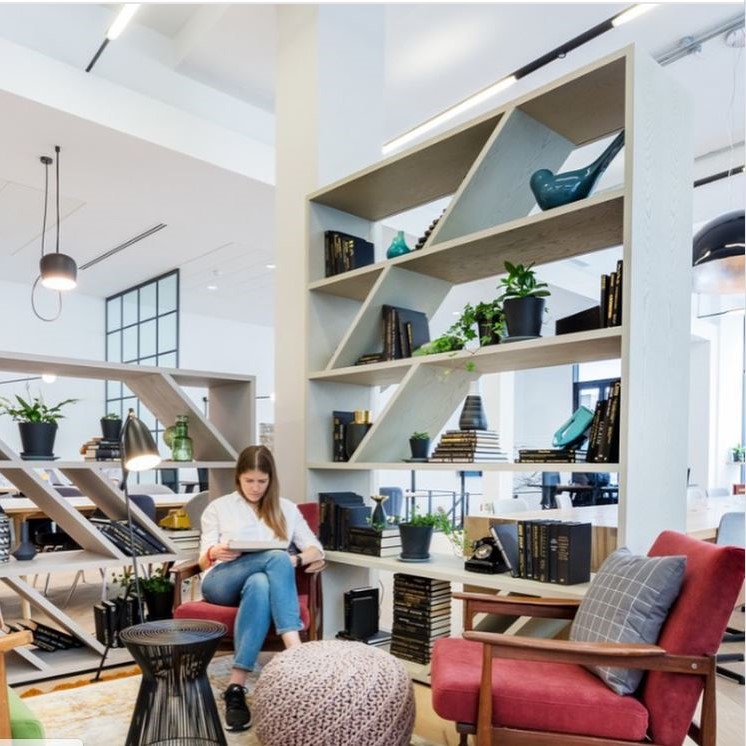To provide the best experiences, we use technologies like cookies to store and/or access device information. Consenting to these technologies will allow us to process data such as browsing behaviour or unique IDs on this site. Not consenting or withdrawing consent, may adversely affect certain features and functions.
The technical storage or access is strictly necessary for the legitimate purpose of enabling the use of a specific service explicitly requested by the subscriber or user, or for the sole purpose of carrying out the transmission of a communication over an electronic communications network.
The technical storage or access is necessary for the legitimate purpose of storing preferences that are not requested by the subscriber or user.
The technical storage or access that is used exclusively for statistical purposes.
The technical storage or access that is used exclusively for anonymous statistical purposes. Without a subpoena, voluntary compliance on the part of your Internet Service Provider, or additional records from a third party, information stored or retrieved for this purpose alone cannot usually be used to identify you.
The technical storage or access is required to create user profiles to send advertising, or to track the user on a website or across several websites for similar marketing purposes.
 Henley Business School’s World of Work Institute has published a new report on what it calls The Omniployment Era The report claims to identify which what a post-Covid, post-Great Resignation workforce looks like. The study identifies six distinct worker ‘segments’* in the UK workforce and quantifies what attracts and retains them in jobs, and provides advice to businesses on how to build a strong workforce. More →
Henley Business School’s World of Work Institute has published a new report on what it calls The Omniployment Era The report claims to identify which what a post-Covid, post-Great Resignation workforce looks like. The study identifies six distinct worker ‘segments’* in the UK workforce and quantifies what attracts and retains them in jobs, and provides advice to businesses on how to build a strong workforce. More →









 Nobody seems to be calling it The Great Resignation any more, but two-fifths (40 percent) of the UK workforce are planning to move jobs in 2024, with one in six already beginning their search as staff look to boost their pay packet, according to the latest Candidate Sentiment Survey statistics produced by recruitment firm Robert Half. The survey’s authors claim these statistics demonstrate the resilience of the labour market as more candidates look to capitalise on skills shortages to boost earnings. Those aged 18-34 are more likely to move roles than any other age group (56 percent).
Nobody seems to be calling it The Great Resignation any more, but two-fifths (40 percent) of the UK workforce are planning to move jobs in 2024, with one in six already beginning their search as staff look to boost their pay packet, according to the latest Candidate Sentiment Survey statistics produced by recruitment firm Robert Half. The survey’s authors claim these statistics demonstrate the resilience of the labour market as more candidates look to capitalise on skills shortages to boost earnings. Those aged 18-34 are more likely to move roles than any other age group (56 percent). 










 You may recall that a couple of years ago, The Great Resignation was one of a handful of things with which certain people had become obsessed. Over a period of about six months at the end of 2021 and beginning of 2022, we were told repeatedly that huge numbers of people were about to quit their jobs to move to something better, pursue their dream of self-employment or whatever. But, the proportion of people saying this was more or less the same as it had always been. Ask people at the end of any year about their plans for the next twelve months, and around 30-40 percent of them will tell you they want a new job or to pursue an old dream.
You may recall that a couple of years ago, The Great Resignation was one of a handful of things with which certain people had become obsessed. Over a period of about six months at the end of 2021 and beginning of 2022, we were told repeatedly that huge numbers of people were about to quit their jobs to move to something better, pursue their dream of self-employment or whatever. But, the proportion of people saying this was more or less the same as it had always been. Ask people at the end of any year about their plans for the next twelve months, and around 30-40 percent of them will tell you they want a new job or to pursue an old dream. 











January 8, 2024
Time to put down the devices if you really want things to look up
by Anoushka Pacquette • Comment, Technology, Wellbeing, Workplace design